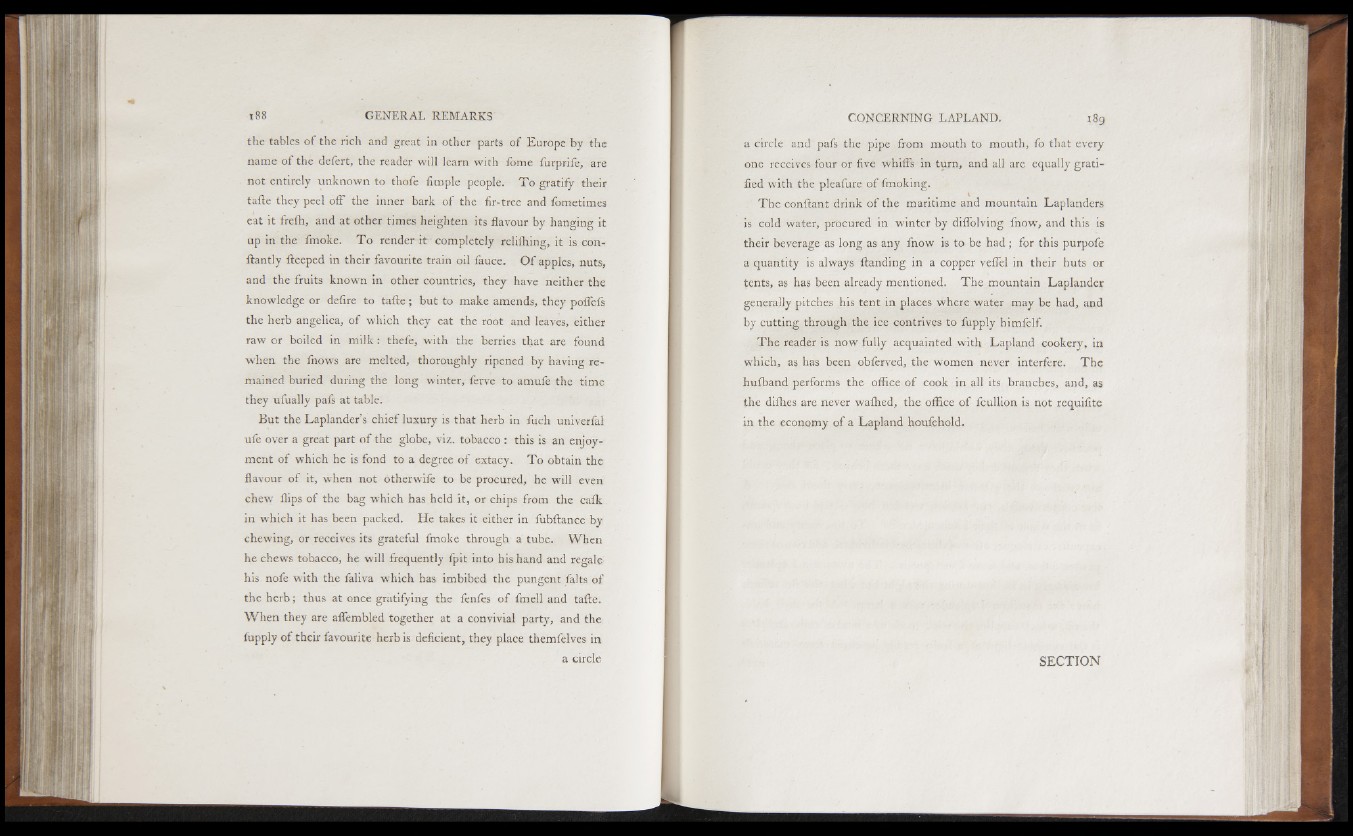
the tables o f the rich and great in other parts of Europe by the
name of the defert, the reader will learn with fome furprife, are
not entirely unknown to thofe fimple people. To gratify their
taile they peel off the inner bark of the fir-tree and fometimes
eat it frelh, and at other times heighten its flavour by hanging it
up in the fmoke. To render-it completely relilhing, it is con-
ftantly fteeped in their favourite train oil fauce. O f apples, nuts,
and the fruits known in other countries, they have neither the
knowledge or defire to tafte ; but to make amends, they poffefs
the herb angelica, of which they eat the root and leaves, either
raw or boiled in m ilk : thefe, with the berries that are found
when the lhows are melted, thoroughly ripened by having remained
buried during the long winter, ierve to amuie the time
they ufually pals at table.
But the Laplander’s chief luxury is that herb in fuch univerfal
ufe over a great part of the globe, viz. tobacco : this is an enjoyment
of which he is fond to a degree of extacy. To obtain the
flavour of it, when not otherwife to be procured, he will even
chew flips of the bag which has held it, or chips from the caik
in which it has been packed. He takes it either in fubftance by
chewing, or receives its grateful fmoke through a tube. When
he chews tobacco, he will frequently ipit into his hand and regale
his. nofe with the faliva which has imbibed the pungent lalts of
the herb ; thus at once gratifying the fenfes of fmell and tafte.
When they are affembled together at a convivial party, and the
fupply of their favourite herb is deficient, they place themfelves in
a circle
a circle and pafs the pipe from mouth to mouth, fo that every
one receives four or five whiffs in turn, and all are equally gratified
with the pleafure of fmoking.
The conftant drink of the maritime and mountain Laplanders
is cold water, procured in winter by diffolving fnow', and this is
their beverage as long as any fnow is to be had ; for this purpoie
a quantity is always ftanding in a copper veffel in their huts or
tents, as has been already mentioned. The mountain Laplander
generally pitches his tent in places where water may be had, and
by cutting through the ice contrives to fupply himfelf.
The reader is now fully acquainted with Lapland cookery, in
which, as has been obferved, the women never interfere. The
huiband performs the office of cook in all its branches, and, as
the diihes are never waihed, the office of fcullion is not requifite
in the economy of a Lapland houfehold.